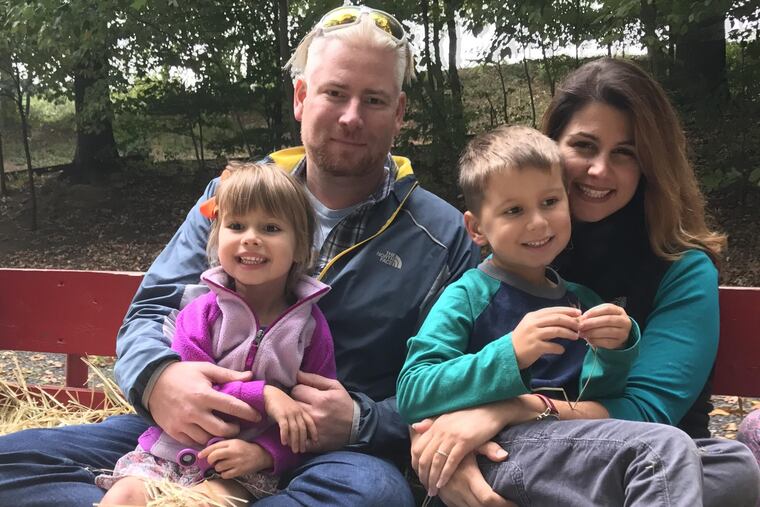Fathers of seriously ill children experience stress differently than mothers
While everyone feels the stress, mothers and fathers often cope in different ways when their child is born with a serious medical problem.

When a child has a serious medical condition, it's an extremely stressful time for everyone involved in the family. Earlier this year, I was the lead author of a study published in Pediatric Critical Care Medicine that highlighted the stress on families and the differences in how mothers and fathers cope when their child is born with a serious medical problem.
While most of the research to date has focused on maternal stress, this study emphasizes the importance of understanding the paternal experience, as well, and the need to support fathers.
Participants in the small study included mothers and fathers of children who underwent cardiac surgery for congenital heart disease (CHD) at less than 6 months of age. CHD is the most common birth defect, occurring in nine of every 1,000 births worldwide. Parents of the children took part in one-hour interviews conducted in private by a pediatric psychologist. Consistent themes related to emotional states, stress and support or lack thereof emerged.
Generally, parents felt unprepared for the emotional impact of the diagnosis on themselves, the sick child's siblings, and the family as a whole. The highest stressors for most moms included insufficient finances, the burden of caring for a medically complex child, the unexpected impact on the family, and problems with their support network. For most fathers, the highest stress-inducers were changes to their role as parents and balancing employment responsibilities with family responsibilities.
The findings underscore the need for health-care providers to direct information and questions to both mothers and fathers, even if the mother is more often at the bedside or more vocal about the child's care. An interaction style that doesn't include the father may intensify feelings of helplessness. If fathers can't be physically present, they can be included by using technology such as Skype or offering more flexibility with their schedules.
Jason Hafer, a father of a child with CHD, said that although he felt supported by hospital staff, he and his wife were treated differently. "It is a pretty nuanced thing, because my feelings were considered. But on more than a few occasions, I would hear something like: 'Your role in this is to support your wife and keep things going at work.' Many times I felt like I was 'the information guy,' that I had to be the one to process the data and explanations. That's kind of my nature, so it was OK, but I also felt disoriented and worried and these things just stayed beneath the surface."
Both the mothers and fathers of children with CHD in our study showed high rates of anxiety, depression, and post-traumatic stress. The impact can have long-term effects. Even when families learned about their child's diagnosis in utero, they felt unprepared to face the stress they experienced from the time of diagnosis, to surgery and hospitalization, to discharge home.
Hospitals and providers can help parents prepare by informing them about what to expect across a variety of domains, including medical, developmental, and psychosocial. I am an advocate of structured family meetings with developmental and psychosocial specialists during both the prenatal and postnatal periods. Such meetings not only help prepare families, but also help us understand their beliefs and concerns and each parent's unique needs. In addition, research has shown that formalized peer-to-peer support can help families feel more prepared and reduce feelings of isolation.
Hafer agrees that formalized peer support would have been helpful. "There were periods when [my child's] life was very much in the balance, and the weight of that is enormous. To have somebody to talk with who had been there would have been so helpful."
To that end, Hafer was instrumental in the start-up of Mended Little Hearts of Delaware, a local chapter of a peer-to-peer network that provides education and support for families of children with CHD. Hafer is one of only a few male chapter presidents in the United States.
"There is so much to be done in the CHD community and such a need for patient and family support," Hafer said. "If my experience can help somebody else manage theirs, that's a win."
Erica Sood, Ph.D., is a pediatric psychologist at Nemours Cardiac Center, Alfred I. duPont Hospital for Children.